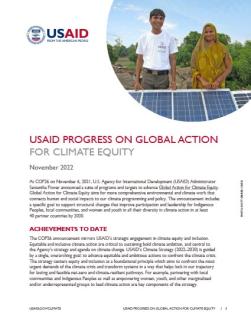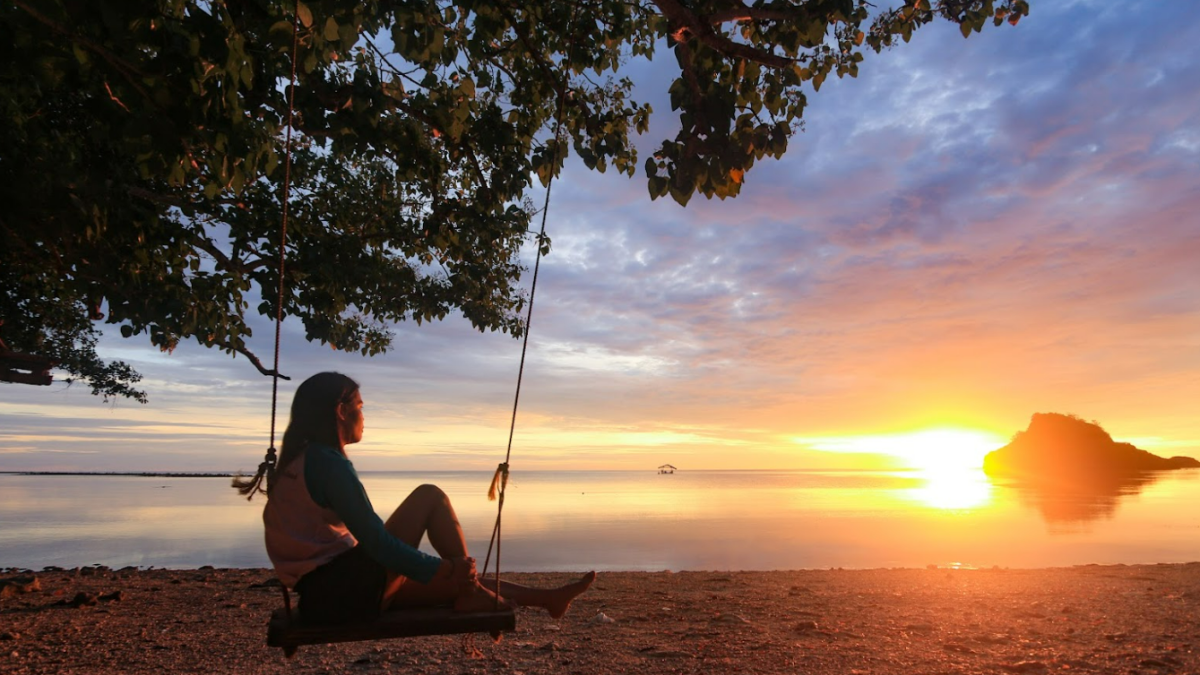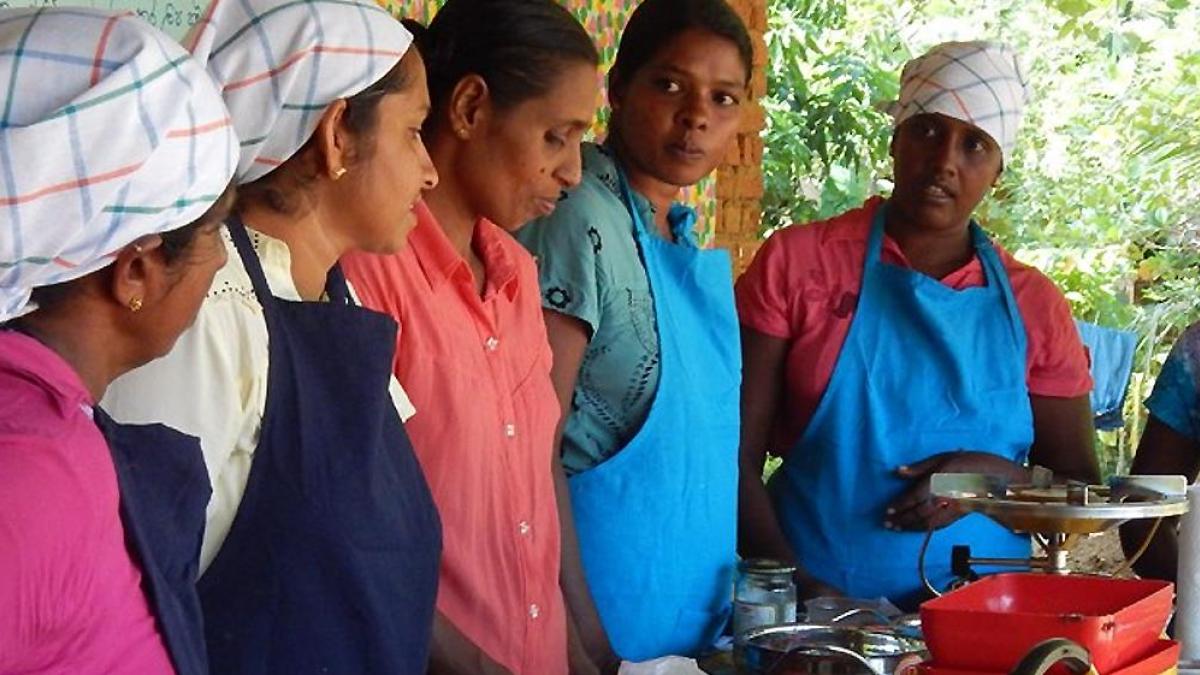Global Action for Climate Equity aims for more comprehensive environmental and climate work that connects human and social impacts to our climate programming and policy.
At COP26 on November 6, 2021, U.S. Agency for International Development (USAID) Administrator Samantha Power announced a suite of programs and targets to advance Global Action for Climate Equity. The announcement includes a specific goal to support structural changes that improve participation and leadership for Indigenous Peoples, local communities, and women and youth in all their diversity in climate action in at least 40 partner countries by 2030.
Achievements to Date
The COP26 announcement mirrors USAID’s strategic engagement in climate equity and inclusion. Equitable and inclusive climate action are critical to sustaining bold climate ambition, and central to the Agency’s strategy and agenda on climate change. USAID’s Climate Strategy (2022–2030) is guided by a single, overarching goal: to advance equitable and ambitious actions to confront the climate crisis. The strategy centers equity and inclusion as a foundational principle which aims to confront the most urgent demands of the climate crisis and transform systems in a way that helps lock in our trajectory for lasting and feasible net-zero and climate-resilient pathways. For example, partnering with local communities and Indigenous Peoples as well as empowering women, youth, and other marginalized and/or underrepresented groups to lead climate action are key components of the strategy.
The special objective also advances climate justice by strengthening diversity, equity, inclusion, and accessibility of the climate workforce. In 2022, USAID also demonstrated a broader commitment to diversity, equity, inclusion, and accessibility (DEIA) through a DEIA Strategy. Overall, USAID has moved ahead on climate equity since the COP26 announcement in priority areas.
Partnerships
USAID co-sponsored the Climate Justice Conference at Yale University in October 2022 with the theme “Reimagining Our Collective Future: Advancing Climate Justice and Food Security in an Age of Uncertainty.” Additionally, we are supporting the development of the first-ever Climate Justice Pavilion at COP27, a global collaborative effort that will center the very voices of communities we want to empower in our Climate Strategy.
Localization
USAID defines “localization” as the process and actions that we are undertaking to ensure our work puts local actors in the lead, strengthens local systems, and is responsive to local communities. To do this, we are adapting our policies and programs to shift power to local actors and channel a larger portion of our foreign assistance directly to local partners. For example, USAID just released its first Local Capacity Strengthening Policy in October 2022 which reaffirms USAID’s commitment to local capacity strengthening by laying out seven principles to help make USAID’s development and humanitarian assistance programming more effective and equitable. We have also just released an updated Risk Appetite Statement, and will soon release an updated Acquisition and Assistance Strategy to better enable USAID to engage with a more diverse set of partners through our A&A practices to implement locally led development solutions. We have a new Agency Learning Agenda that will drive research and learning about how USAID can more equitably engage local knowledge, assets, and practices and align programming, and we launched WorkwithUSAID.org, a new resource hub that helps new (and current) partners learn how to partner with USAID.
Gender Equality and Women’s Empowerment
USAID is dedicating more than $21 million to gender-responsive climate action from the Gender Equity and Equality Action (GEEA) Fund, surpassing its $14 million COP26 commitment. Together, these initiatives work to build women's climate leadership, economic opportunities in green industries, and address gender-based violence in the context of climate change. One key investment is a new USAID partnership with online retailer Amazon, Inc. to launch the Climate Gender Equity Fund (CGEF) for private sector investment in helping women and girls access networks, skills, technology, and resources to develop and scale climate solutions. This fund will catalyze gender-responsive investment in technologies, products, and services that will reduce, avoid, or sequester CO2 and other greenhouse gasses, and build the resilience of value chains and communities. The fund also seeks to address critical gaps in the climate finance ecosystem so that women and girls gain the tools and knowledge they need to succeed in their climate actions. In addition, USAID is supporting national governments to develop gender action plans, building on their national climate plans, to address climate-related gender inequality, including in Guatemala and Rwanda.
Youth
USAID updated its Youth in Development Policy to include a stronger emphasis on the climate crisis and guide our youth-focused and youth-inclusive activities on this issue. We are including youth in the development of climate activities such as the Resilient Coastal Communities Activity in Mozambique, the Governance Integration for Stabilization and Resilience in the Middle East and North Africa Task Order, and the Central America Service Corps in Honduras.
Indigenous Peoples
USAID is collaborating with the Forest Tenure Funders Group (FTFG) on the implementation of the 5-year $1.7 billion pledge to support forest tenure for Indigenous Peoples and local communities. USAID’s Indigenous Peoples’ team participates in three FTFG work streams: stakeholder engagement, scoping of regranting mechanisms, and developing mechanisms for effective support to Indigenous Peoples and Local Communities (IPLCs). USAID’s Indigenous Peoples’ Alliance for Rights and Development program is providing capacity building and other support to Indigenous leaders and organizations to amplify their voices at global and regional climate fora, including Climate Week and COP. Of particular interest are the tenure rights of Indigenous Peoples, the role of Indigenous women in maintaining Indigenous knowledge and practices, and increasing funding support for locally led development. USAID is working with Missions to add an Advisor on Indigenous Peoples to seven Missions to strengthen the Missions’ engagement and collaboration with Indigenous Peoples.
Persons with Disabilities
The Disability Program Fund has allowed more than $6 million in FY21 funds to USAID Missions to support their work in the area of disability-inclusive climate action, with those activities aimed at supporting persons with disabilities and their representative organizations to respond to climate change, including boosting their resilience to the impacts of climate change. Serving as co-chairs of the Global Action on Disability (GLAD) Network on behalf of the U.S. government, the Department of State and USAID are active participants in the GLAD Network Climate Change Working Group, where we are coordinating and collaborating with other donors.
Stories of Implementation
Youth, Gender, and Disabilities Program in Rwanda
From 2017–2022, the Hinga Weze activity from USAID/Rwanda worked with local government and private sector partners to improve farmers’ knowledge of good and climate-smart agricultural practices—such as the utilization of improved inputs and planting methods—through trainings, extension, and demonstration plots.
- More than 14,500 youth benefitted from Hinga Weze support by participating in “Youth for Change” activities on nutrition, agribusiness development, extension, and accessing capital through grants and loans.
- To support the development of youth entrepreneurs, the Hinga Weze Activity provided internships to more than 200 youth and awarded $92,647 in youth-specific grants for companies including Mahwi Tech, Carl Group, Zima Enterprise, and KOTIB. Using the grant funds, Mahwi Tech was able to transform its M-LIMA platform, a youth-owned agricultural market information platform, into an online marketplace that can serve the dual purposes of providing market information and facilitating market linkages. Similarly, technology company BK TecHouse was able to expand its online Smart Nkunganire System to support more than 200,000 new farmers, including 51,324 youth, by improving their agricultural input and information distribution and digitalizing their agricultural dealer operations through a Mobile Order Processing Application.
- Hinga Weze partnered with Twisungane Mageragere, a cooperative founded by persons with disabilities, to provide technical assistance in marketing and also an approximately $9,642 (RWF 8,233,500) grant that was used to procure agricultural processing equipment identified by the cooperative. Through the Hinga Weze-supported equipment, post-harvest losses are now being reduced by over 50 percent and the cooperative’s production is more marketable, enabling them to sell more maize for greater profit. In 2020, Hinga Weze supported 2,111 persons with disabilities across all its interventions.
Gender Equality, Indigenous Peoples, and Sustainability in Central America
From 2018–2022, the Regional Coastal Biodiversity Project (RCBP) has helped marine-coastal communities protect the region’s biodiverse and carbon-rich ecosystems to promote economic growth and increase local prosperity, working through a suite of integrated strategies: governance, biocommerce, gender equality and social inclusion, and communications. Working with Advancing Gender in the Environment (AGENT), USAID’s partnership with the International Union for the Conservation of Nature (IUCN), the RCBP developed a gender strategy that ensured gender integration throughout the project. The project results include:
- Strengthening the capacity of five local community organizations that support Indigenous Peoples and local communities and encompass the vast majority of the region’s fisheries and agricultural organization members to implement gender-responsive activities and promote women in sustainable and adaptive enterprise organizations and opportunities.
- Supporting women’s inclusion in fisheries organizations and associations. To date, women make up at least 30 percent of membership in 12 of these organizations.
- Training 214 women and 372 men in various capacity building programs that range from technical skills to improve sustainable practices to financial management skills development.
- Working with male leaders to promote gender equality and prevent gender-based violence, as domestic and intimate partner violence had been noted in gender analyses as barriers for women’s participation and leadership.
- Together, women and men now work to restore and sustainably use mangroves having planted 547,000 seeds to reforest 36 hectares of degraded mangroves.
- The formation of a new network of young communicators led by six women and six men ambassadors promoting gender equality in the conservation of coastal marine resources.
In addition, RCBP has worked with national and regional governments to promote gender equality. Activities include:
- Establishing a strategic alliance with the region’s Organization of the Fishery and Aquaculture Sector of the Central American Isthmus (OSPESCA) and Central American Integration System (SICA) to promote gender integration in fisheries.
- Collaborating with the Environmental Investment Fund of El Salvador (FIAES), the government’s small grant initiative, to strengthen gender in the fund’s project proposals.
- Supporting Guatemala’s Directorate of Fisheries and Aquaculture Regulation (DIPESCA) in using RCBP’s gender strategy as a guide for gender-responsive approaches.
Moving Forward
Moving forward, USAID will focus on localization with a goal that 50 percent of USAID activities—across our development and humanitarian portfolio—will put local communities in the lead to co-design a project, set priorities, drive implementation, or evaluate the impact of our programs by 2030. This relates to a broad theory of change—that in order for actions to be both sustainable and equitable they must be locally-led, owned and implemented. In other words, we do not think it is possible for climate actions to be either sustainable or equitable without being driven by local systems and local change agents. This may include evaluating how best to engage local actors in the program cycle to allow for improved co-creation while maintaining appropriate restrictions around procurement-sensitive information.
Climate finance is a key way to enhance equitable climate action. USAID’s newly announced Climate Finance for Development Accelerator (CFDA, formerly the Green Recovery Investment Platform, GRIP), has a target to award 40 percent of its subcontracts to local entities or new partners with a goal to support the climate change outcome to improve participation and leadership of Indigenous People, local communities, women, and youth in at least 40 countries. The first activity under CFDA will be announced at COP27 for a Gender-Responsive Climate Finance facility. This facility will leverage private capital and catalyze gender-responsive investment to maximize access to networks, skills, technology, and resources that women and girls need to scale and develop climate mitigation and adaptation solutions. The facility also seeks to address critical gaps in the climate finance ecosystem so that women and girls gain the tools and knowledge they need to succeed in their climate actions.
Ensuring localization and inclusive development while scaling up climate finance is essential to the successful implementation of USAID’s climate strategy and aligns with priorities of other donors, civil society, and private sector. Knowledge-sharing and coordination between actors in the development ecosystem will be key moving forward to meet this challenge.



